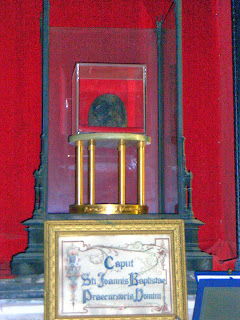Is missionary self-defense taught by Jesus? The short answer is, No.
But Robert Gundry seems to think so,
here, in criticism of the Zealot hypothesis revived by Reza Aslan:
Though Jesus wasn't "a violent revolutionary bent on armed rebellion," he "instructs his disciples immediately after the Passover meal" to go sell their cloaks and each buy a sword, as for a violent revolution. So says Aslan, but he fails to mention the context of an evangelistic mission requiring not only a sword for self-protection but also a purse, bag, and sandals for travel, just as he fails to mention that Jesus' bringing a sword has to do, figuratively and contextually, with division in families over whether to follow Jesus, not with revolution against Rome (compare Jesus' saying in the different context of violence that "all who take the sword will perish by the sword"). Undoubtedly Jesus was crucified as "The King of the Jews"—i.e., as a messianic rebel—but Aslan has to doubt or deny that the Sanhedrin shifted from the religious charge of blasphemy, under which they condemned Jesus, to a false political charge of sedition when arraigning him before Pilate [emphasis added].
The key evidence is in Luke 22.33-38:
And he said unto him, Lord, I am ready to go with thee, both into prison, and to death. And he said, I tell thee, Peter, the cock shall not crow this day, before that thou shalt thrice deny that thou knowest me. And he said unto them, When I sent you without purse, and scrip, and shoes, lacked ye any thing? And they said, Nothing. Then said he unto them, But now, he that hath a purse, let him take it, and likewise his scrip: and he that hath no sword, let him sell his garment, and buy one. For I say unto you, that this that is written must yet be accomplished in me, And he was reckoned among the transgressors: for the things concerning me have an end. And they said, Lord, behold, here are two swords. And he said unto them, It is enough.
The first thing to be said about this is that if Reza Aslan has to doubt or deny a shift in charges by the Sanhedrin, Gundry has to believe and assert a shift in context to the evangelistic in this passage which is plainly absent.
To be sure, Luke here makes Jesus allude to Luke 9.3:
And he said unto them, Take nothing for your journey, neither staves, nor scrip, neither bread, neither money; neither have two coats apiece.
But now Luke makes Jesus reverse this command in the new context, and what's new about it is that Jesus plainly anticipates there will be a threat to the safety of the disciples, who like Peter will deny him and run away. Jesus isn't anticipating some new missionary activity for the disciples. He's imagining their scattering, and so their vulnerability, sheep without their shepherd.
If I were going to be mean, I'd call Jesus a situation ethicist on Gundry's reading. But Gundry's idea of new missionary activity is clearly by analogy from the previous instruction, not in evidence in the new instruction itself. At least on Luke's presentation of Jesus' words, the new situation might logically require carrying weapons, but to imagine a missionary reference at this point in the narrative looks strained, to say the least. And why weren't weapons needed before? Won't God continue to protect his own now without them? Faith as the grain of a mustard seed.
The problem is that Luke's overall presentation of the arrest of Jesus looks fanciful and muddled, quite apart from this reversal in the mouth of Jesus. It's almost as if Luke is trying to harmonize the unharmonizable. And this passage about swords seems to be representative of that.
For example, in 22:24 the whole question of who would be the greatest among the disciples intrudes unnaturally in the narrative, after Jesus' prediction of his betrayal by one of his very followers at the Passover meal, as if to suggest the disciples are a bunch of narcissists at the hour of Jesus' greatest need. And hadn't Luke brought up this argument going on amongst the disciples way back in chapter 9 already? Why bring it up again? Matthew by contrast knows nothing of this controversy popping up at the Lord's Supper.
Then in 22:43 an angel appears to Jesus to strengthen him at the Mount of Olives, but since the disciples are all asleep as this occurs, who is there to observe this, that Luke might know of it, hm? Did a little birdie tell him? Matthew does not know of it, even though he claims to know about many appearances of angels otherwise, including to Jesus' father, Joseph.
Additionally, what sense does it make that one of the disciples took off an opponent's ear with a sword and didn't get arrested for it on the spot with Jesus, if Jesus is perceived by his opponents to be an insurrectionist King of the Jews on the Zealot hypothesis? Arrest the ring leader, along with his armed followers, right? In Matthew at least, where there is no new talk of acquiring weapons for such a situation, Jesus rebukes the resort to weapons forthrightly, and the offending disciples escape, as they do also in John but not without a second divine sign in addition to the healing the ear that was cut off.
And, of course, in the past missionary activity the disciples have had to eschew self-defense instruments such as staves according to Luke's own account, but now suddenly they already are seen to be in possession of swords! "Oh look, here's two", they say now, like Jesus didn't know they've had them all along.
Is that narrative to be believed while at the same time Jesus expresses indignation at his opponents for coming for him by night with weapons? Isn't that the pot calling the kettle black on Luke's reading? Neither Matthew, Mark nor John (!) make Jesus look quite so foolish, allowing weapons for us, but not for you.
There's something funny going on in the tradition about all of this, which may be illuminated by examining all the passages in the gospels mentioning swords and staves, where you will find not the slightest hint of approval for carrying weapons of any kind, except perhaps in two places.
In Matthew 10:34 we have this:
Think not that I am come to send peace on earth: I came not to send peace, but a sword.
Yet the explanation following this makes it clear, as Gundry points out, that this is a metaphorical sword, one meant to explain repentance in the most radical terms as that which divides the follower of Jesus even from normal human relationships, as the case may require, just as a real sword would:
And a man's foes shall be they of his own household.
That leaves us with Mark 6:8 only, which isn't even about a sword, but only about a staff, truly more of a defensive weapon than is a sword, which is an offensive one:
And commanded them that they should take nothing for their journey, save a staff only; no scrip, no bread, no money in their purse.
Mark, unfortunately, is not supported in this reading by Matthew nor by Luke, who both correct Mark and say Jesus commanded them to take not even that. Interestingly, when Luke's Jesus refers to this in chapter 22 (cited above), however, he merely summarizes what he had made explicit in chapter 9, glossing over the staves entirely, which he had earlier specifically prohibited. Luke is making Jesus look rather fast and loose with the facts here.
Was that intentional on Luke's part? I think so. Luke is writing from a later period, coping with the new reality of the kingdom's coming having been already long delayed. He is at pains to rationalize the Christian's continued existence in an increasingly dangerous world, and finds the earliest tradition about the imminently coming kingdom and its ethic of no possessions, not even weapons, difficult to reconcile with reality. The remarkable thing about that is how he knows that tradition and records it in the starkest possible terms (14:33), which no one else does (So likewise, whosoever he be of you that forsaketh not all that he hath, he cannot be my disciple). It's almost like it bothers him. And, of course, Mark's unique saying about keeping a defensive weapon would be in keeping with Luke's point of view because, like Luke, Mark is associated with the later, Pauline perspective, which has already rationalized to some extent the failure of the parousia.
It is fashionable to ridicule Luke the historian as anything but an historian for reasons such as this. On the contrary I would say that his realism about the on-going perils of human existence in the face of a delayed parousia mark him as a reliable recorder of the transition from failed apocalyptic faith to the phoenix of catholic faith.
But it will not do for us to sweep aside the Jesus who thoroughly disavowed the role of human agency in ushering in the reign of God and who believed to the bitter end that God himself would bring it to save the faithful few who repented and were waiting for it. Nor can we sweep aside Jesus' expectation of this imminently coming kingdom for one rationalized as delayed indefinitely in order to save the many who would be able also to repent and believe.
Both views trim the sorry evidence.















